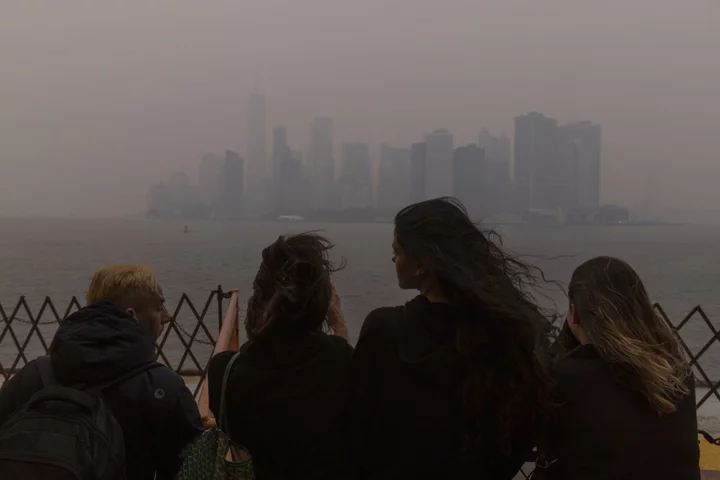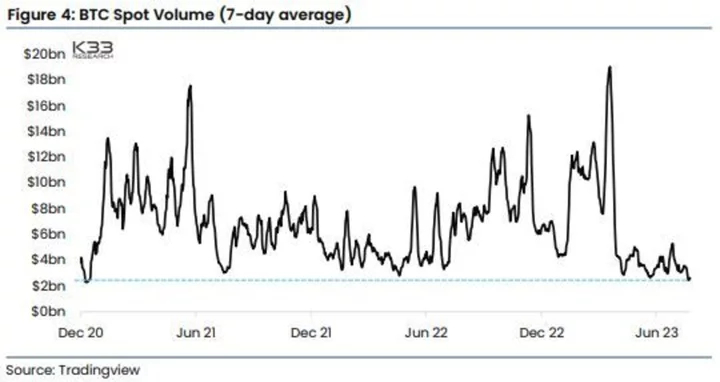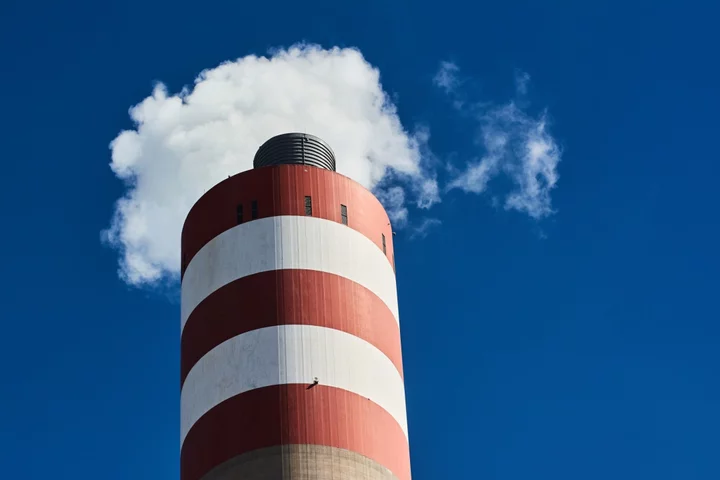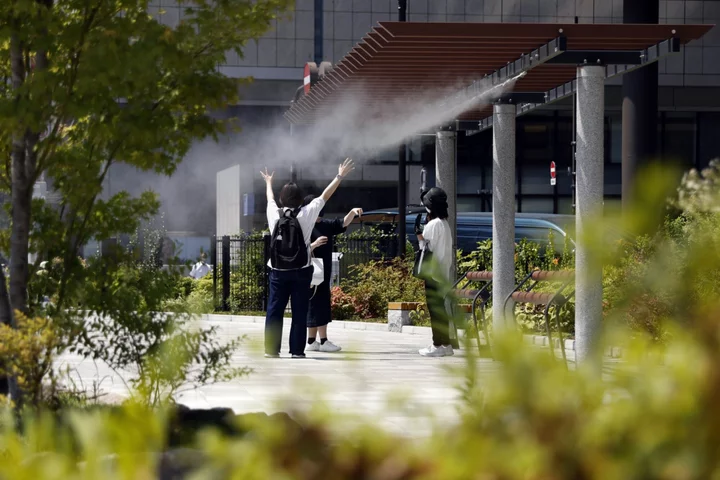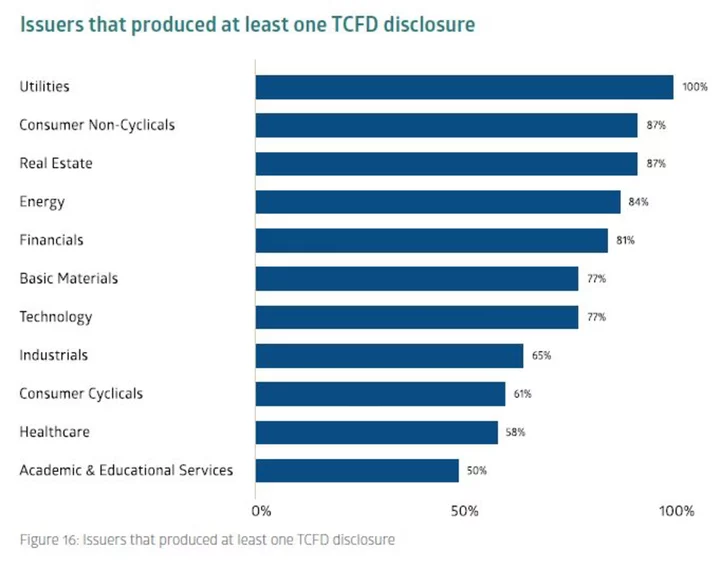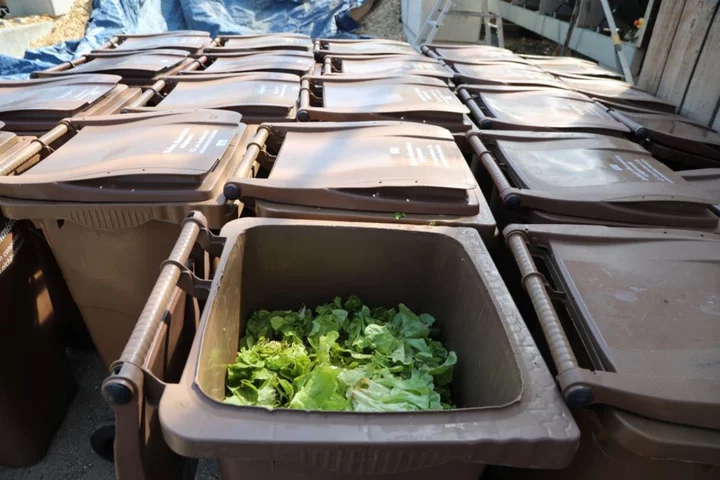Clean air remains elusive on the US East Coast as smoke and haze from the worst Canadian wildfires on record linger over the eastern US.
Air quality readings were mostly moderate Sunday from Boston to Jacksonville, Florida, to Louisville, Kentucky, according to the Environmental Protection Agency’s AirNow map. A few pockets were rated unhealthy for sensitive groups as of 4:30 p.m. Sunday, including parts of New York City, though the air was slightly improved from earlier in the day. Winds have helped to disperse some of the smoke.
The haze isn’t as intense as last week when New York was ranked the most polluted major city in the world, but it is forecast to stick around until Monday when rain showers move in and help cleanse the air. The region got a brief reprieve on Saturday, when much of the Northeast had a few hours of clear skies.
“It’s come back in,” Jim Connolly, a meteorologist with the National Weather Service’s office in Upton, New York, said by phone. “You can see the haze out there.”
The New York State Department of Environmental Conservation issued a health advisory for the western part of the state on Sunday, while the Delaware Valley Regional Planning Commission, which covers nine counties in Pennsylvania and New Jersey, issued an air quality alert for metro Philadelphia.
Wildfires have become more common as climate change leads to hotter summers that make forests more vulnerable to blazes. It’s one more indicator that extreme temperatures are making the planet less hospitable, with drought, stronger hurricanes and heat waves becoming more severe.
Read more: Wildfire Smoke Increases the Risk of Contracting Covid-19
The rain storm pushing east from the Midwest is forecast to arrive Monday evening, delivering as much as two inches of precipitation. Rain is also expected on Tuesday over northwestern Quebec, which may help firefighters battling massive wildfires that have raged for many days.
“That will wash out some of the smokiness,” said Zack Taylor, a meteorologist with the US Weather Prediction Center in College Park, Maryland.
--With assistance from Brian K. Sullivan.

